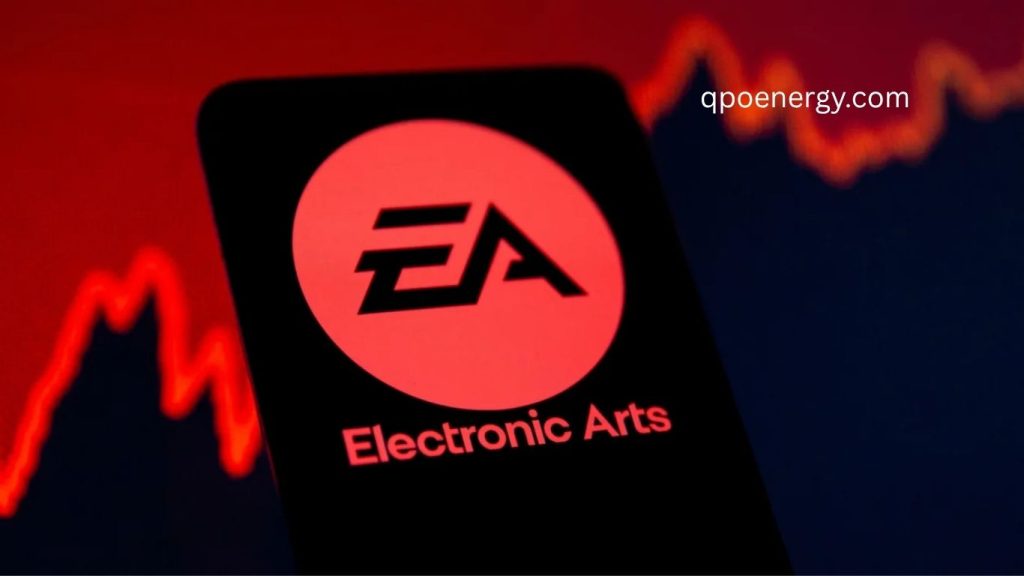Electronic Arts (EA), one of the world’s leading video game publishers, made headlines on Friday as its stock surged 15% following a Wall Street Journal report that the company is on the verge of a monumental $50 billion deal to go private. The potential transaction has sent shockwaves through the gaming and financial sectors, marking what could become the largest leveraged buyout in Wall Street history.
Read More: UAE Takes Bold Leap: Joining U.S. and China to Empower the World with Revolutionary A.I. Technology
A Game-Changing Move for EA
According to reports, the proposed deal involves major global investors, including Saudi Arabia’s Public Investment Fund (PIF) and private equity giant Silver Lake. Both firms have shown significant interest in expanding their influence in the gaming industry. The agreement could be officially announced as early as next week, signaling a transformative shift for EA and its investors.
PIF has been aggressively investing in the entertainment and gaming space over the past few years. The sovereign wealth fund, valued at over $900 billion, has already made high-profile acquisitions — including stakes in the creators of Pokémon Go and the parent company of Monopoly Go. By adding Electronic Arts to its expanding portfolio, PIF aims to strengthen Saudi Arabia’s position as a global powerhouse in digital entertainment.
Affinity Partners Joins the High-Stakes Deal
Adding to the intrigue, Jared Kushner’s investment firm, Affinity Partners, is also reportedly involved in the negotiations. A source familiar with the matter confirmed the firm’s participation but declined to be named due to the private nature of the talks. The involvement of Affinity Partners reflects the growing interest of U.S.-based investors in gaming, recognizing the sector’s resilience and profitability even amid broader market uncertainties.
If completed, this deal would mark a major milestone not only for Electronic Arts but for the entire private equity landscape. It underscores how gaming has evolved from a niche entertainment category to a multi-billion-dollar investment frontier attracting sovereign funds, tech magnates, and Wall Street’s most powerful players.
Breaking Records on Wall Street
The scale of EA’s potential buyout is unprecedented. At approximately $50 billion, it would surpass the historic $45 billion leveraged buyout of TXU Energy in 2007. In a leveraged buyout (LBO), investors primarily use borrowed funds to finance an acquisition, often leveraging the company’s assets to secure the debt. This strategy allows firms to acquire large companies while limiting the amount of direct equity invested.
For Electronic Arts, this move could signal a strategic transformation. By going private, the company would be freed from the constant scrutiny of quarterly earnings reports and public market pressures. It would gain the flexibility to focus on long-term innovation, new game development, and expansion into emerging technologies like cloud gaming, artificial intelligence, and virtual reality.
EA’s Powerhouse Gaming Legacy
Founded in 1982, Electronic Arts has built a reputation as one of the most influential video game developers and publishers in the world. Its blockbuster franchises—The Sims, Madden NFL, and EA Sports FC (formerly FIFA)—have defined generations of gaming experiences. EA’s sports titles, in particular, have enjoyed consistent global popularity, dominating annual sales charts and esports tournaments alike.
In recent years, EA has also expanded into live services, offering subscription-based gaming and online multiplayer platforms that ensure continuous revenue streams. The company’s transition from one-time game sales to recurring digital content has proven highly profitable, especially as players embrace downloadable content, in-game purchases, and virtual currencies.
With Friday’s rally, EA’s stock is now up roughly 32% year-to-date, reflecting strong investor confidence in its leadership and growth potential. The company’s success in blending creativity with data-driven business models has made it a standout performer in the entertainment sector.
Why Investors Are Betting Big on Gaming
The gaming industry has evolved into one of the most lucrative entertainment markets globally, surpassing both film and music combined. Analysts estimate that global gaming revenue will exceed $200 billion by 2025, driven by mobile gaming, cloud platforms, and the rise of virtual and augmented reality technologies.
For investors like PIF and Silver Lake, this growth potential is irresistible. Gaming offers not only massive profit opportunities but also cultural influence and technological innovation. By acquiring EA, these firms gain a powerful foothold in a market that continues to expand across every demographic and region.
Moreover, gaming aligns with PIF’s Vision 2030 initiative—a strategic plan led by Saudi Crown Prince Mohammed bin Salman to diversify the nation’s economy beyond oil. Building a strong entertainment and technology ecosystem is central to that vision, and gaming investments are a key component of that strategy.
The Road Ahead for Electronic Arts
If the deal moves forward, Electronic Arts would join a growing list of major tech and entertainment companies opting to go private. This move allows for bold decision-making without the constraints of public market expectations. EA’s leadership would likely have greater autonomy to pursue acquisitions, invest in new technologies, and expand into new genres and regions.
Going private could also enable EA to reimagine its business strategy amid an evolving industry landscape. The rise of generative AI, immersive gaming, and cross-platform ecosystems offers unprecedented opportunities. EA has already hinted at ambitions to integrate more real-time experiences, community-driven features, and advanced AI tools into its game development process.
Additionally, the company could use the buyout as a catalyst for restructuring—streamlining operations, improving profitability, and strengthening its creative studios. Freed from shareholder pressure, EA could double down on innovation and long-term value creation rather than short-term financial targets.
A Historic Shift for Wall Street and Gaming
This potential buyout would not only reshape EA but could redefine how investors view the gaming industry as a whole. The scale of the transaction highlights the growing intersection between technology, entertainment, and high finance. As private equity firms and sovereign funds pour billions into the digital entertainment space, gaming has officially cemented itself as one of the most valuable assets in the modern economy.
The implications extend beyond Wall Street. For gamers, this could mean even more ambitious projects, next-generation titles, and deeper immersive experiences. For developers, it could translate into greater investment in creative freedom and technological tools. And for investors, it confirms that gaming is no longer a speculative bet—it’s a cornerstone of global innovation and entertainment.
Frequently Asked Questions:
Why did Electronic Arts’ stock surge by 15%?
EA’s stock jumped after reports from The Wall Street Journal suggested the company is nearing a $50 billion deal to go private, attracting global investors.
Who are the main investors involved in the potential buyout?
The rumored investors include Saudi Arabia’s Public Investment Fund (PIF), private equity firm Silver Lake, and Affinity Partners, an investment firm led by Jared Kushner.
What does it mean for EA to “go private”?
Going private means EA would be removed from the stock market, allowing it to operate without the constant pressure of public shareholders and quarterly financial disclosures.
How significant is this $50 billion deal?
If finalized, it would be the largest leveraged buyout in Wall Street history, surpassing the $45 billion TXU Energy deal in 2007.
What is a leveraged buyout (LBO)?
A leveraged buyout is when investors use borrowed money (debt) to acquire a company, often using the company’s assets as collateral for the loans.
What are some of EA’s most popular games?
EA is known for blockbuster franchises such as The Sims, Madden NFL, and EA Sports FC (formerly FIFA).
How has EA performed financially this year?
Following the latest surge, EA’s stock is up approximately 32% in 2025, showcasing strong investor confidence and consistent growth.
Conclusion
Electronic Arts’ potential $50 billion take-private deal represents a defining moment for both the gaming and financial worlds. The company’s 15% stock surge underscores the market’s excitement and confidence in EA’s enduring strength, innovation, and future vision. With powerful global investors like Saudi Arabia’s Public Investment Fund, Silver Lake, and Affinity Partners reportedly backing the move, EA stands on the brink of a historic transformation.


